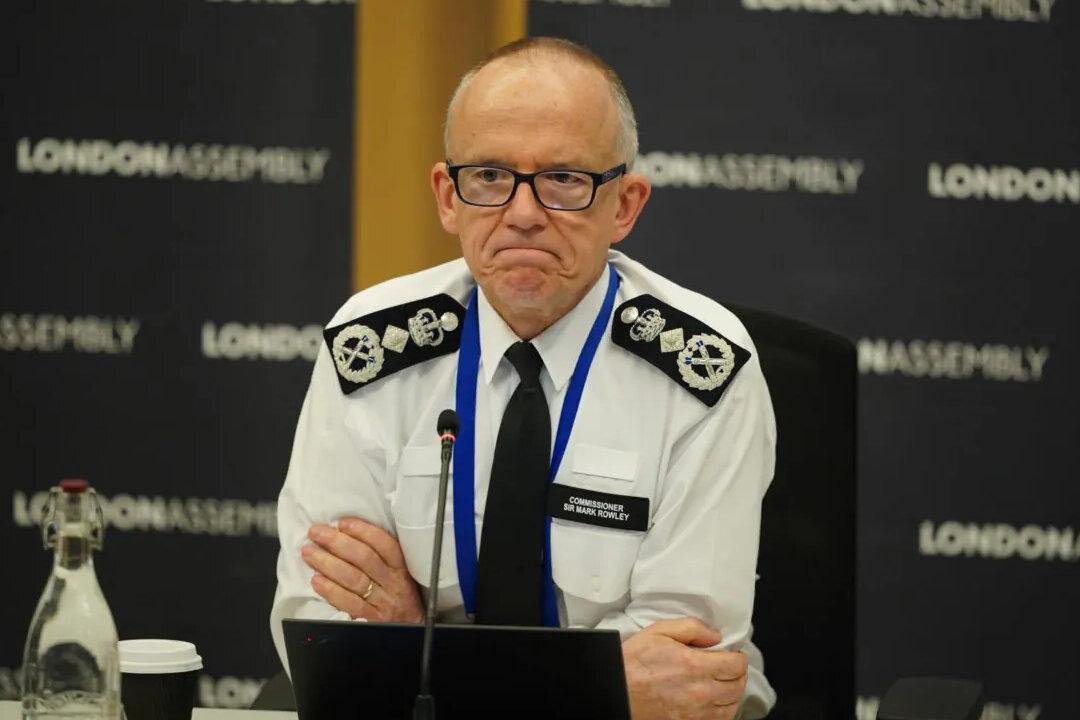There’s no British law designed to deal with extremism, the chief of the Metropolitan police said amid an ongoing controversy around what actions seen during pro-Palestinian protests are legal or illegal.
After chants of “jihad” were heard in one of the protests amid the ongoing Israel-Hamas war, government ministers have called for “the full force of the law” to be brought against those who call for jihad, but the chiefs of the Met and the Crown Prosecution Service (CPS) have defended their judgement that the chants at the Hizb ut-Tahrir demonstration on Oct. 21 are permitted under current law.





